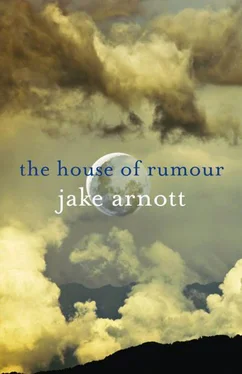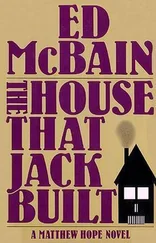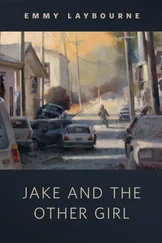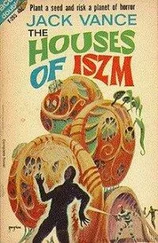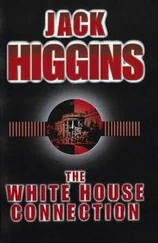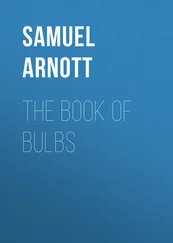‘I’m on the game!’
They laugh together now. She indulges him. A real gentleman, she decides. Only public-school boys ever get the joke of her name.
‘I’m on the game, too,’ he tells her.
‘Why, you naughty boy,’ she purrs. ‘Well, don’t expect me to pay you.’
‘Of course not. It’s another game I play. The Black Game.’
‘The Black Game?’
‘Telling lies and making up stories.’
‘What sort of stories?’
‘I can’t tell you. It’s a secret.’
‘Naughty boy. Are you some sort of spy?’
‘I’m retired. Well, they never quite let you go. I’ve been pulled back for this wretched business at Spandau.’
‘Spandau?’
‘Look, I really shouldn’t be telling you anything.’
‘Like the Spandau Ballet?’
‘Yes, it was rather like a dance. A sort of quadrille between the Four Powers. You know, it was the last thing the wartime allies continued to do together. To guard an old man.’
‘I knew them, you know?’
‘What?’
‘Spandau Ballet. They used to come to Billy’s and the Blitz. I preferred Danny Osiris and Black Freighter.’
He frowns at her. He has no idea what she is talking about.
‘I used to be a bit of a New Romantic,’ she tells him.
He smiles. And he feels compelled to answer:
‘I used to be a bit of an old romantic.’
But he knows it’s a lie.
He falls back into his armchair. Exhausted. Sated. He lets out a satisfied sigh. Now he feels he has finished his job, though little flashes of Hess run through his mind. The Spandau Ballet: what made her say that?
‘I’d better get going,’ she is saying.
‘Yes. I hope you don’t mind me not seeing you out. I’m rather tired.’
He has already paid her. No need for that awkward ritual at the door.
‘See you again, perhaps.’ She grins and her eyes flash for a moment.
And she is gone.
She sees the briefcase in the hallway and says to herself, no, it’ll only get you into trouble. Her hand is already on the latch; she is ready to let herself out without looking back. But at the last moment she turns and grabs it, swinging it out of the door with her.
Back in her little studio flat she lights the gas and turns the case out onto the hearthrug. A copy of The Times and an A4 manila envelope. She opens it and pulls out a sheaf of papers. A manuscript. She sits down and begins to read.
My first job in the Service and my last. There’s always a danger of giving random events undue significance but it was hard not to see a pattern in the Hess case. His flight marked a curious apex in the rise and fall of the Third Reich; his death now becomes part of the Cold War endgame. But years of study have rendered little of substance or meaning. Perhaps he merely represents something of my generation of intelligence. A Secret Service tradition that went from fighting a war we had to win to facing off a war that we could never allow to happen. Now it appears that the latter game is over too. By all accounts the Soviets were finally ready to let him go. Then suddenly his suicide. Eric Judd calls Hess the Hanged Man, which seems an appropriately mysterious symbol. Because whatever you believe, there was an occult aspect to this case. After all, what ‘occult’ means is to be hidden or obscured.
What you have to remember is that none of us involved in the affair ever knew the whole story. I for one was only ever told about a plan to reactivate our tame Nazis in the Link, that pitiful bunch of Fifth Columnists run by the Political Warfare Executive, and even that was quickly aborted when Joan Miller’s cover was blown. Everyone close to it picked up strange clues and hints that something very odd might have transpired but nothing could be proved or verified.
It’s true that after the capture of Hess in Scotland, Commander Fleming did issue a memorandum recommending Aleister Crowley as an advisor in his interrogation. But there is certainly no record that the Great Beast played any part in a scheme by elements within the Service to lure Hess over. And if any of the files of Operation Mistletoe ever see the light of day, they will probably merely hint at a vague disinformation campaign that used faked paranormal material to provoke the superstitious elements within the enemy. It was certainly part of our broader strategy. The Political Warfare Executive eventually employed its own astrologer, the rather absurd Louis de Wohl, who was given a captain’s rank on the understanding that this was a mere payroll technicality. He caused great embarrassment to our department when he was spotted in Piccadilly, sporting a very shabby uniform that he had acquired for himself. The colonel in charge of our section said he looked ‘just like an unmade bed’.
In the spring of ’42, Fleming came to Political for a liaison meeting. He was putting together a special commando unit for intelligence gathering. It was then that he told me about the queer book titled Swastika Night that he was certain had in some strange way predicted Hess’s flight to Scotland. He had even interviewed the author, who turned out to be a woman writing under a male pseudonym.
In 1985, an American publisher, the Feminist Press, reissued Swastika Night and revealed its author as Katharine Burdekin. I got hold of a copy and found that there was indeed a reference (on page 87) to a character called Hess leaving the Nazi inner circle and travelling to Scotland. It seemed an odd coincidence.
The next time I saw Fleming was in Normandy in ’44, just after the D-Day landings. I was with a reporting unit at Carteret where the Allied armies were regrouping before advancing to the north-east. He was with this commando squad he had formed, the 30 Assault Unit. He called them his ‘Red Indians’. I remember that bloodhound expression on his face. Handsome, dashing, keen for the fray. His battledress just a bit too clean and well tailored.
We got a chance to inspect the huge rocket installations the Germans had left behind: vast concrete bunkers, launch pads and gantries. We walked around dismantled missile parts, nose-cones and finned engine assemblies. In retrospect it was like the setting of one of his books. As we picnicked on K-rations amid futurist ruins, I asked him what he intended doing after the war. I nearly choked on my Spam when he replied: ‘Why, write the spy story to end all spy stories.’
For a moment I had a vision of him telling some imaginative account of Operation Mistletoe. I was professionally appalled but personally intrigued by the possibility of someone making sense of one of the greatest mysteries of the war. Perhaps it would make sense only as fiction. Maybe Fleming had worked out some sort of key to it.
It was a full ten years before his first book came out. I scanned it for any obvious clues but soon realised what a futile task it was to chase after hidden meanings in novels. Granted, the figure of ‘M’ in Casino Royale is clearly Maxwell Knight: everyone in the Service knew him as such (Fleming even gives him a Chief of Staff named Bill, just as Knight had). This was telling since really Fleming had dealings just with Knight over Mistletoe. And Joan Miller is certainly the template for the attractive assistant that Bond flirts with. Most playful of all was the obvious use of Crowley as inspiration for the villain Le Chiffre (French for cypher). But then this would hardly be the first time the Great Beast had been turned into a fictional character. And there was nothing else in the book that even hinted at any solution to the puzzle of Operation Mistletoe. I have to say that I was more than a little disappointed.
I was by then married to Clarissa Devereux, the third daughter of the Lord Marshalsea. It had been a brief engagement, just after the war when everything seemed hopeful. It’s shocking to think now how innocent we were, especially of sexual matters. Soon after our honeymoon I was posted to Kuala Lumpur as Security Liaison Officer to the Colonial Special Branch. It was the time of the Malayan Emergency and I was co-ordinating psychological warfare and propaganda strategies in the counter-insurgency against communist terrorists.
Читать дальше
